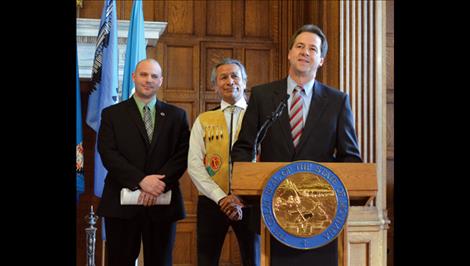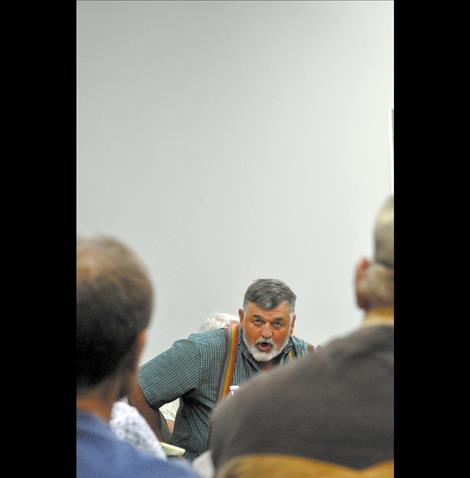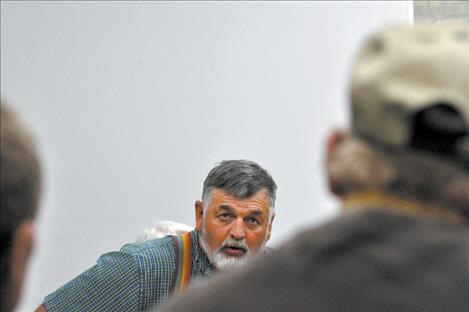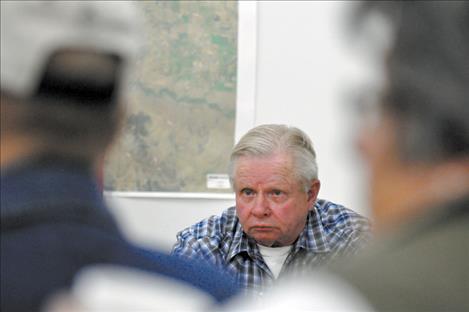Governor signs water compact, but irrigators simmer into court

courtesy photo
Governor Steve Bullock signs legislation ratifying the Confederated Salish and Kootenai Water Compact as members of the state legislature and tribal government look on.

courtesy photo

Megan Strickland
Flathead Joint Board of Control Irrigation Commissioner Tim Orr has a heated exchange of words with irrigators who voiced their displeasure with the board’s recent actions.

Megan Strickland

Megan Strickland

Megan Strickland
Issue Date: 4/29/2015
Last Updated: 4/28/2015 6:17:15 PM |
By
Megan Strickland
Keep Reading!
You’ve reached the limit of 3 free articles - but don’t let that stop you.















